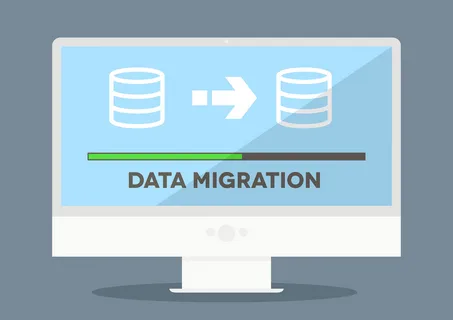Moving all your corporate data to a new accounting platform is a daunting task. But it can be a good one too.
There are several instances where QuickBooks migration becomes essential for a business. The most common case is when a company file becomes too large and affects functionality and usability.
Cost
A QuickBooks data migration can secure your business, enhance productivity, and take it to the next level. The process is fast, easy, and affordable. Moreover, it can save you money in the long run by eliminating additional expenses associated with maintaining a local system. It also gives you access to a wider range of add-ons. In addition, it helps you reduce manual data entry by automatically categorizing bank and credit card transactions. This feature helps you avoid clerical errors and improves your accuracy. Additionally, it enables you to work from anywhere, including on mobile devices, at a time that is convenient for you or your accounting firms.
Before moving to QuickBooks Online, you should update your company file, reconcile all bank accounts, and process payroll. It is also a good idea to make a backup copy of your QuickBooks Desktop file. During the migration process, you may encounter some issues with your database. For example, your inventory may not be imported correctly. This is because QuickBooks Desktop uses the average cost method to track inventory, while QuickBooks Online uses the first-in, first-out (FIFO) method. In such a case, you can import your inventory data using an Excel spreadsheet or manually in QuickBooks Online.
Once the conversion is complete, you’ll receive a migration summary report that lists any unmatched accounts or discrepancies with list items. It will also list any missing or deleted items. You can then correct these problems manually or use Dataswitcher, which will automatically correct most of the common AR and AP problems. The report will also list any prior bank reconciliation reports that were not imported.
Another benefit of migrating to QuickBooks Online is its scalability and security. Your information is stored on US-based servers, which means it’s protected by strict data privacy laws. Additionally, the software is backed up daily. This ensures that your data is safe in the event of a disaster.
While there are many benefits to switching to QuickBooks, it’s important to consider the cost of migrating your data to a new system. While the initial investment may be high, it will save you money in the long run.
Efficiency
Using an automated accounting solution isn’t just cost-efficient but also augments business productivity by enabling better data analysis. This is especially important when managing inventory, manufacturing, and accounting for multiple legal entities. If you’re relying on an older version of QuickBooks, you might want to move to an advanced version that offers features such as multi-company consolidations, dashboards, and enhanced reporting. A cloud-based version of the software is more scalable, making it easier to expand your operations without worrying about system damage or data loss.
The first step in determining whether QB migration is needed is to determine the cause of performance issues. This can be difficult because there could be several factors at play, such as a company file that’s growing quickly or a lack of space on the hard drive where the files reside. Once you know the problem, you can determine the best way to fix it.
If you’re a QB desktop user, you’ll need to back up your current data file before starting the migration process. Once your old file is backed up, you can begin the process of importing your existing data to the new QuickBooks Online file. This is a tedious task and may take up to a few hours, depending on the size of your data file.
Before you start importing your data, it’s important to make sure that the new QuickBooks Online account is set up and ready to receive the data. You’ll also need to reconcile your bank accounts, process payroll, and adjust your inventory before importing the data. To minimize the number of entries, you have to manually enter and export your list of items and transactions using Transaction Pro. You can also use the QuickBooks Desktop Suggested Order to Import or QuickBooks Online Suggested Order to Import articles to help you plan which data to import into your new company file.
Once the data is in your new account, you can then complete your QuickBooks online setup and begin setting up your chart of accounts, defaults, and preferences. Then, you can run a trial balance to ensure that all of the data is accounted for. If you’re unable to find any duplicates, you can proceed with a full migration. Otherwise, you can review and scrub your data again to ensure that all of the information is mapped correctly.
Flexibility
A growing business sometimes outgrows the scalability and functionality of its current accounting solution. When this occurs, data migration is the best way to ensure that your company can continue its growth without experiencing major disruptions. This process involves importing your existing QuickBooks data into another accounting platform that is more advanced. Many enterprise-level systems make this process fairly easy and even provide apps that can automate the entire process.
One of the most common reasons for a QuickBooks data migration is to move from a desktop application to an online version. This can be due to changing demands, a limited number of available PCs, the need for improved security, and other factors. The QuickBooks online version offers many benefits, including scalability, flexibility, and enhanced functionality.
Another reason for a QuickBooks data migration is to upgrade from a small business version to a larger accountancy solution. For example, when you have outgrown the limits of the Small Business Edition, it is a good idea to switch to a larger system like NetSuite. It provides a comprehensive company management suite that includes ERP, CRM, e-commerce, HR, and inventory management functions. This unified approach improves productivity and communication across departments, leading to better decision-making.
To prepare for the transition, you can export your existing QuickBooks list items and transactions using Transaction Pro Exporter. You should also prepare a migration summary that includes the chart of accounts, mapping rules, and other information. This will help you avoid importing duplicate or inaccurate data. Once the file has been exported, you can review and scrub it before importing it into Sage.
Once the master data has been imported, you can begin importing your QuickBooks transactions. This is a manual process, but it will save you time in the long run. Once the import is complete, you can begin analyzing your financials in detail.
The best way to minimize the risk of data migration is to consult a qualified accountant. This professional will understand the technical and operational nuances of moving your financials from one accounting software solution to another. They will also be able to advise you on the best solution for your company’s needs.
Security
If you are considering migrating your QuickBooks financial data to a new computer, it is important to follow the correct steps. This will help you avoid losing any of your important information and ensure that the process is completed without any problems. This will also prevent any errors that could cause your system to crash. It is a good idea to contact an expert for assistance if you have any questions or concerns.
Having efficient operations is essential for the success of any business. Maximizing efficiency can save time and money while improving productivity and allowing your company to adapt quickly to changes in the market. The most effective way to improve efficiency is by creating a clear roadmap for each project and clearly assigning tasks. This will help you to minimize delays and ensure that all team members understand their roles. Holding regular meetings with your team members to discuss issues and clarify responsibilities is also a good idea.
One of the most common reasons for a QuickBooks migration is a file that has become too large and is affecting performance. In this case, you will need to migrate the most recent data to a new file. Another reason for a QuickBooks migration is to upgrade to the cloud, which offers more storage space. In addition, a migration to the cloud will allow you to access your QuickBooks data from anywhere.
QuickBooks has a built-in tool that can help you migrate your financial data to a new computer or server. The process is quick and easy and will protect your information by avoiding any unnecessary backups. The process may take a while to complete, depending on the size of your files. You can also download a standalone application to perform the backup.
In addition to offering a secure environment, QB Online can provide you with insights and analytics that go beyond traditional accounting solutions. This data can help you make better decisions and improve your company’s efficiency and profitability. NetSuite’s customizable dashboards and real-time reporting tools enable you to gain a deeper understanding of sales patterns, inventory levels, customer behavior, and more. You can even customize reports and filters to gain insight into critical areas of your business.











